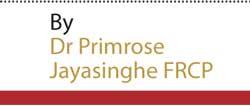29 Dec 2020 - {{hitsCtrl.values.hits}}
 The Buddha used simple techniques to direct the attention of the devotee to the question at hand (Pic AFP)
The Buddha used simple techniques to direct the attention of the devotee to the question at hand (Pic AFP)
 We are fast approaching the end of yet another year, albeit a highly unconventional one. If 2020 has taught us anything, it’s that the status quo can change for the worse. After all, everything – be it material or non-material – is subject to change. After His enlightenment, Gautama Buddha expounded during His very first sermon (The Dhamma Chakka Pavattana Sutta) The Four Noble Truths that deal with the process of change. It is the first time that ‘change’ or ‘impermanence’ (known in Pāli as Anich-chā) had been discussed by any ‘religious’ leader up to that point. Although very easy to observe, one has to be attuned to what is happening around oneself to be able to identify that this change does indeed occur. However, ignorance can intervene in our understanding of impermanence.
We are fast approaching the end of yet another year, albeit a highly unconventional one. If 2020 has taught us anything, it’s that the status quo can change for the worse. After all, everything – be it material or non-material – is subject to change. After His enlightenment, Gautama Buddha expounded during His very first sermon (The Dhamma Chakka Pavattana Sutta) The Four Noble Truths that deal with the process of change. It is the first time that ‘change’ or ‘impermanence’ (known in Pāli as Anich-chā) had been discussed by any ‘religious’ leader up to that point. Although very easy to observe, one has to be attuned to what is happening around oneself to be able to identify that this change does indeed occur. However, ignorance can intervene in our understanding of impermanence.
The Buddha used simple techniques to direct the attention of the devotee to the question at hand. How He does this is to expose the issues under discussion, like lifting a lid off a bowl, so that those wishing to educate themselves are able to see what’s within and thereby understand the issues clearly – or, to put it another way, to flash a light into the darkness to bring into view what was not seen before. These methods are only needed because the Buddha’s teachings are about seeing things as they really are, things one may have failed to notice simply due to the veil of ignorance that prevails.
According to the Buddha, Patichcha Samuppādaya or ‘Dependent Origination’ provides answers to many questions in everyday life. In gist, it mentions that every action is followed by an appropriate reaction. Conversely, every reaction has to be prompted by a particular action. Thus, every effect one experiences is due to a cause
The Four Noble Truths are acknowledged by the Buddhist community as the foundation of the Buddha’s Teaching. There is, surely, no argument about the ‘reality of change’: science corroborates this fact without any prejudice. The common reaction to any kind of change is normally antagonistic, as nobody seems to like change! Hence Anich-chā leads to ‘sorrow’ (or Dukkha, in Pāli), which is The First Noble Truth. But, superficially, change can even be as entertaining as magic.
Magical oddities
The festive season brings with it elements of magic and fantasy – just think of Santa or his flying reindeer! So perhaps it’s because of the season, or simply a reaction to the unusual year that we’ve all collectively experienced, or both, that we are hearing so much about magical paraphernalia these days. Admittedly, we are not averse to superstition in Sri Lanka, since we can easily be swayed by most things of a supernatural ilk, such as demons, deities, charms and heavenly potions – or even a particular magical energy referred to as ‘universal energy’. For me, personally, the best natural ‘magic’ is being able to witness the Aurora Borealis or the Aurora Australis – the frolicking colours that put on a lightshow that illuminates the night sky, particularly during winter. Or even the simple pleasure gained by seeing a rainbow! All these natural phenomena happen because there is a reason for their appearance. Nothing happens without a cause; so if anything does appear to originate without a plausible reason, then one has to make sure that a realistic explanation has not been ignored and confirm that it did not originate in someone’s mind. The bottom line, however, is that every effect that we experience is brought on by the activation of its relevant cause.
Thus, there appear to be two kinds of ‘change’: one of impermanence that can be acknowledged by anybody and another originating in somebody’s mind. These days the media are full of offers of magic potions. If this is merely seasonal jollity we are sure to cope and maybe even enjoy it. But if this is brought on by the continuation of the issues presented by the coronavirus disease, it will cause a great deal of unnecessary confusion. It is common sense that treatment for any disease should be tailored to the eradication of the cause of that disease. For this to take place efficiently, one needs to understand at least the basic facts about the disease. To unleash magical potions formulated only by the mind, with no evidence or research to substantiate these concoctions, is not only unethical, but also dangerous and irresponsible. All responsibility for treating a patient should lie fairly and squarely on the shoulders of the prescribing ‘physician’, whoever that might be – but they should be properly vetted by the authorities. This, however, does not seem to happen in Sri Lanka – anybody can pose as a ‘medical’ person. Moreover, the sudden rush to promote multiple ‘cures’ for COVID-19, in a very short space of time, begs the question as to why long-standing, life-threatening diseases such as malaria or dengue have not been similarly confronted with vim and vigour?
This whole drama brings to mind the occasion of a total eclipse of the sun a few decades ago, when a soothsayer asked everyone to make use of that ‘great opportunity’ to enhance beauty by drinking a special concoction suggested by him. A large number of people in the community did heed the call. They all drank the ‘wada kaha sudiya’ decoction and the majority reacted very badly! Funnily, we are ready to take risks, even with our own lives, by accepting potions that come our way, particularly if they are given free, as on the occasion mentioned above. We never seem to learn from our mistakes, which is a tragedy, and I see it as taking a massive step back in our overall advancement, both within medicine and beyond, while we traverse this twenty first century.
According to the Buddha, Patichcha Samuppādaya or ‘Dependent Origination’ provides answers to many questions in everyday life. In gist, it mentions that every action is followed by an appropriate reaction. Conversely, every reaction has to be prompted by a particular action. Thus, every effect one experiences is due to a cause. In medicine, one has to go that extra mile to hunt down any cause that may even be remotely responsible for the effect(s) so far experienced. When the cause is found, a treatment can then be tailored to suit the purpose of eliminating the disease. And hopefully this strategy will promote the development of a suitable treatment for Covid, too. This was how smallpox was eradicated from the world. Therefore, to forego the rigor of the scientific method to instead promote potions that rely on nothing more than magic or hearsay is to endanger the population and move us, as a society, backwards instead of forwards – and that is of no use to anyone.
27 Nov 2024 17 minute ago
27 Nov 2024 1 hours ago
27 Nov 2024 2 hours ago
27 Nov 2024 4 hours ago
27 Nov 2024 5 hours ago